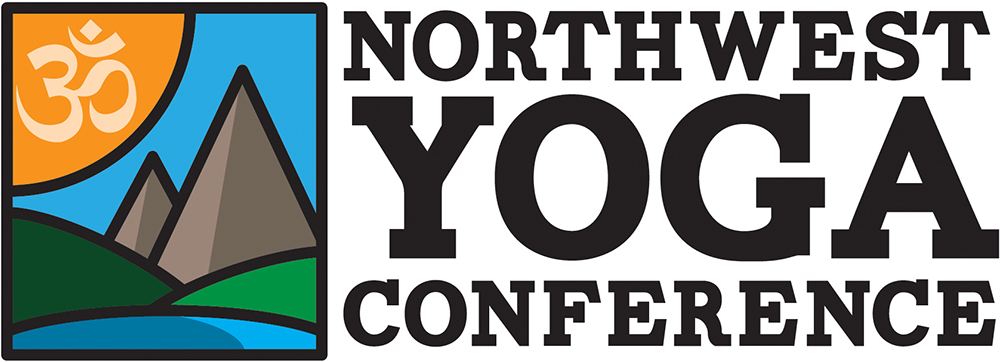By: Jill Rivera Greene, Conference Blogger
Yoga teacher, author of Over the Rainbow, and intuitive life coach Debbie Dixon is  kicking off the conference with a Friday morning workshop on “The Power of Intention.” So it seemed fitting to reach out to Debbie for some tips for how this practice can enhance our conference experience and our lives.
kicking off the conference with a Friday morning workshop on “The Power of Intention.” So it seemed fitting to reach out to Debbie for some tips for how this practice can enhance our conference experience and our lives.
Why is intention such an important practice?
Most of us believe that in yoga the point is to empty the mind, to delete all thoughts and find that peaceful center.
Intention is about understanding that having thoughts isn’t “bad”—it’s just that some of those thoughts are not conducive to what we’re trying to create in our lives. So setting intention is about learning to harness the mind: notice the thoughts that don’t belong there, release those, and replace them with the thoughts you wish to have.
A lot of the beliefs we have buried in our bodies are not ours. They were gifted to us from other people (parents, teachers) and situations that occurred when we were too young to control the outcomes of our lives. These beliefs surfaced to protect us at one time, but we no longer need them.
Our minds are our gardens, and we need to tend our gardens. What beliefs are there that no longer serve us? What new beliefs do we wish to plant?
How do you practice intention in your life, and what changes have you seen as a result of this practice?
I do this before everything that I do. So for example, before this conversation, I decided what I wanted the outcome to be. I said to myself, “I hope this goes well. I hope she’s informed and has enough information to inspire people.” I got clear about that, and then I knew how to prepare.
I love this idea, but I struggle with making it a habit.
It takes some work. I started implementing the practice of intention very simply. I did it in group settings a lot at first, so there were people around to keep me focused. It’s hard to stay stuck in old patterns if you’re around other people who are committed to thinking differently.
Next I started just waking up with a general intention. “Today is going to flow effortlessly, with ease and grace.” Or an intention around a specific event: “I’m going to teach three classes, and at the end of each one, people will walk away feeling great.”
When you’re setting your intention, the power lies not so much in the words, but in what those words feel like. Connect with that sensation, and breathe it into your body before you even get out of bed. Really ground in that feeling within the body.
Today I use intention as a constant practice. As often as I can, I stop, take a conscious breath, and set my intention. When you start to do this regularly—setting an intention, seeing how it works out—you will begin to see the synchronicities. You will realize that we truly are “intending” our lives, every minute. So instead of going through life thinking, “I hope this [bad thing] doesn’t happen,” we start to think, “What if it all works out beyond my wildest dreams?” In my own life this has been so amazing, watching the outcomes.
If the results are as good as you say, why do I feel some resistance to this?
There may be beliefs in you like, “I’m not good enough.” When I tell you to believe the opposite, that old belief is so powerful that you almost feel like you’re lying to yourself. That’s why it’s so important to tend to the garden. You have to find those beliefs, the “weeds” that are holding you back. You have to connect with believing that you deserve, so that you can open yourself up to receive.
Some of us have spent our entire lives feeding thoughts that are negative because it’s a safer place to be. The more something matters to us, the more passionate we are about it, the scarier it is to set that positive intention. It takes courage not to let ourselves be diminished.
Do you have a suggestion for how attendees might approach setting an intention for their conference experience?
On a really basic level, you can set an intention for the conference as a whole. What do you want, what are you lacking? It could be as simple as a greater sense of health and  well-being. If you’re a teacher or a yoga studio owner, maybe you’re hoping for inspiration, people to fill your studio, a sense of community. Or there might be something you’re struggling with in your life, and you’re looking for ways to balance and open up to divine healing.
well-being. If you’re a teacher or a yoga studio owner, maybe you’re hoping for inspiration, people to fill your studio, a sense of community. Or there might be something you’re struggling with in your life, and you’re looking for ways to balance and open up to divine healing.
Whatever it is, you want to align your intention for your conference experience with what’s happening in your life. What results would you like to see?
You can also do this before each workshop. Say to yourself, “At the end of this workshop, here’s how I want to feel. Here’s what I want to receive.” For example: “I can’t wait to leave feeling energized and happy that I spent this time wisely.”
For those who want to dive a little deeper into this practice, what can attendees expect from your Friday morning workshop?
We will talk about how to set intentions and how to infuse them with power, so you really do gain back control of your life. We will do some meditation to dig up and clear out old beliefs, so that you can replace them with whatever you decide. I will give people step-by-step tools to use at any point during the day.
Faith is really important when setting your intention. Your goal is to get to 100 percent faith, but often this builds up gradually. It can’t be forced, because when we force, there’s that resistance. Instead, there’s a gentle way of asking, with love, and learning at the same time to accept yourself wherever you are in the journey.
Love yourself exactly where you are, and then ask yourself: What’s the next step in my journey? How can I most lovingly get there?
